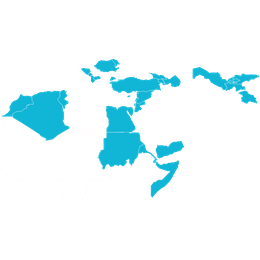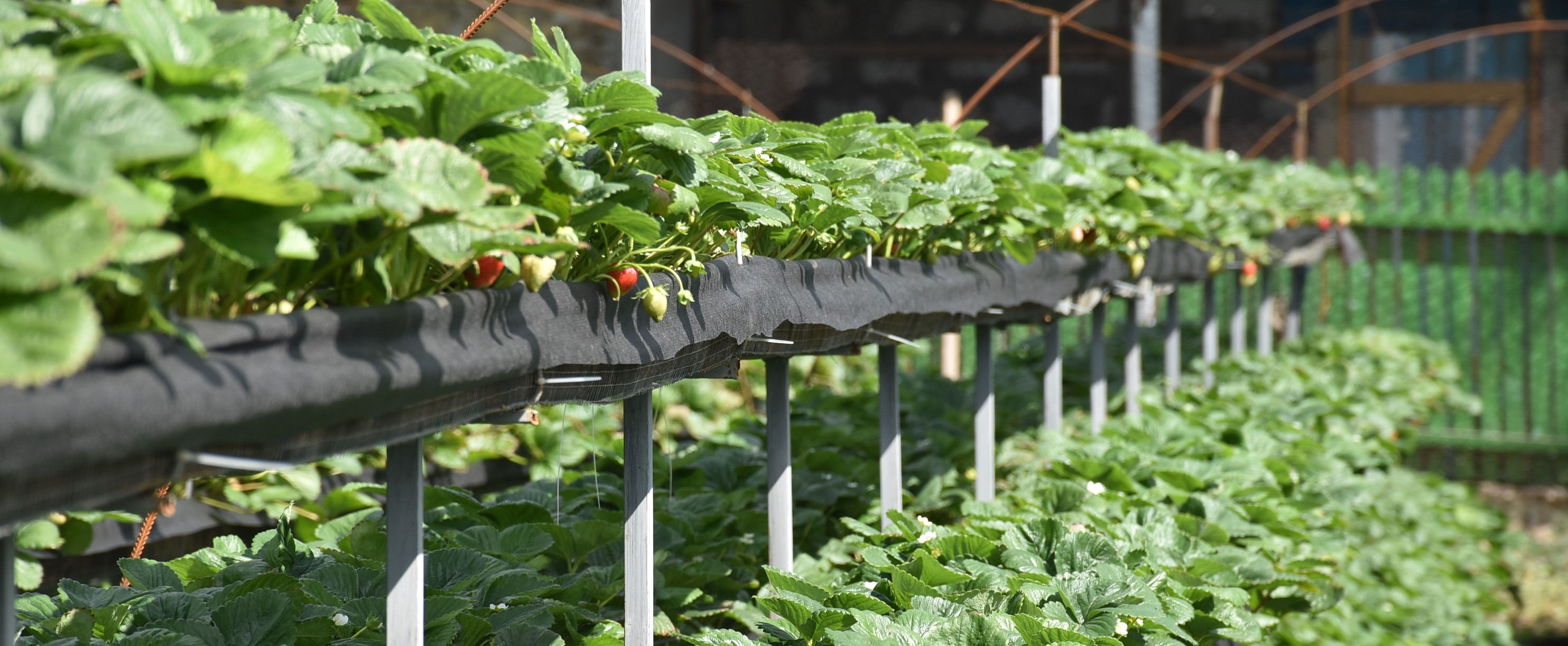Enhancing access to financial services for young entrepreneurs
"I started the business in 2015 when I bought the land and then together with my husband took courses on how to properly plant a hazelnut orchard, that was organized in Italy. We imported 2,462 trees. In the future, we intend to open a processing section, but also a section for the production of pasta and oil."
Corina Novac, IFAD beneficiaryBACKGROUND
In the Republic of Moldova, the lack of knowledge about rural investment possibilities, as well as uncertainty about running a small business, causes hesitation among young people who want to become entrepreneurs. With the help of the Inclusive Rural Economic and Climate Resilience Programme (IRECR), farmers are now able to apply for loans and initiate or develop their own businesses, adopt innovative agricultural practices, or capitalize on high-quality agri-food products for domestic and regional markets.
WHAT’S INVOLVED
Business plan support
Support young entrepeurns in business skills development.
Financing training
Capacity building on accounting and quality management of agro-food production.
Study tours
International study visit to good practices in Agriculture
EXPLORE THIS SOLUTION
The Inclusive Rural Economic and Climate Resilience Programme can offer:
- A blueprint for offering pre- and post-financing training for farmers on topics such as business management, accounting, food production and livestock
- Opportunities for building young entrepreneurs’ capacities through local fairs, exchange visits and study tours

Countries involved
Republic of Moldova
Project partners
IFAD, Danida
Project dates
2014 - 2021
Share this solution
Bookmark this solution
BookmarkShow Full Solution
Summary
The main goal of the Inclusive Rural Economic and Climate Resilience Programme (IRECR) is to strengthen the rural financial sector and provide investment-financing facilities to poor rural micro-entrepreneurs who are embarking on income-generating activities. In addition to access to loans, micro-entrepreneurs also benefit from technical assistance and support for developing business plans.
Challenge/Problem
Moldova is facing an increasingly volatile and deteriorating environment. The economy is highly exposed to the deepening Eurozone crisis as a result of its dependence on remittances, exports and capital inflows. It is increasingly clear that rural growth strategies must be adapted and reoriented away from a remittance-based, consumption-driven model of widespread subsistence agriculture and towards an investment-based rural economy with highly productive, more market-oriented approaches.
Young entrepreneurs face unique challenges and opportunities that also require targeted strategies. They are often constrained in their access to even short-term finance because of their limited credit history and lack of any form of ‘hard’ collateral. Moreover, while young entrepreneurs often have drive, innovative ideas and high ambitions, they often lack the experiences needed to translate these into viable, realistic and implementable business plans and models. Consequently, this target group is best served through a combination of improved access to financial services and tailor-made advisory and coaching assistance before and after the investment.
Solution
About 75 per cent of the rural population in the Republic of Moldova, especially women and the elderly, depend entirely on activities related to agriculture. As young rural people leave for urban areas, the age of the average rural worker is rising. Indications are that it is the most skilled, talented and entrepreneurial youth emigrating, which reduces rural labour productivity to levels even lower than the data suggest. To counter these severely damaging trends, the government and its development partners have initiated several programmes.
The Inclusive Rural Economic and Climate Resilience Programme (IRECR), active from 2013 to 2021, successfully empowered more than 1,500 young women and men to invest in the development of their own businesses. In partnership with the Danish International Development Agency (Danida), IRECR supported young entrepreneurs in making their dreams come true: in addition to loans and grants, the project provided them with support for developing business plans and nurtured their learning journey through workshops and local and international study visits. IFAD’s support inspired those young entrepreneurs to adopt innovative agricultural practices while encouraging them to capitalize on high-quality agri-food products for domestic and regional markets.
Young entrepreneurs are often constrained in their access to even short-term finance due to their limited credit history and lack of any form of ‘hard’ collateral. IRECR’s age limits were adjusted to include people of up to 35 years in order to serve young people who had recently returned to rural areas and had interest in starting a business. Women entrepreneurs of up to 40 years were also allowed to apply. Moreover, the IRECR programme encouraged a diversity of investments, for example by limiting tractor purchases. It also provided more tailored coaching both pre- and post-investment.
Results
By the end of 2019, 451 loans had been disbursed to young entrepreneurs. The number of permanent jobs increased by 53 per cent, including by 70 per cent for women, and seasonal jobs increased by 28 per cent. Among the entrepreneurs who received IRECR financing and were eligible for impact evaluation, monthly salaries for permanent positions grew by 65 per cent, and daily wages for seasonal jobs grew by 32 per cent. Additionally, of the 70 per cent of young entrepreneurs who took part in the trainings offered by IRECR, 96 per cent found the trainings to be useful, and 52 per cent applied the knowledge obtained from them. Furthermore, of the respondents to a survey for the programme assessment:
- 82 per cent reported an increase in sales
- 74 per cent said that their business progressed after an irecr loan
- 67 per cent reported an increase in assets
- 62 per cent reported an increase in income
- 23 per cent took out additional loans for their business after the intervention, with an average loan of about USD25,000
- 12 per cent implemented quality standards such as those set by Global Gap, ISO and the National Agency for Food Safety.
Lessons Learned/Potential for replication
The project adopted a matching grant approach which enabled the young entrepeneurs to benefit from two financial products. They were provided both a grant and a loan to develop their businesses.
Next Steps
In order to motivate young entrepreneurs and to increase access to funds, the Consolidated Programme Implementation Unit (CPIU) will create and improve financial products for young entrepreneurs. In addition, to increase the knowledge and managerial abilities of young managers, capacity-building activities will be organized on topics related to their businesses.
Solution Video
Last update: 03/06/2022


